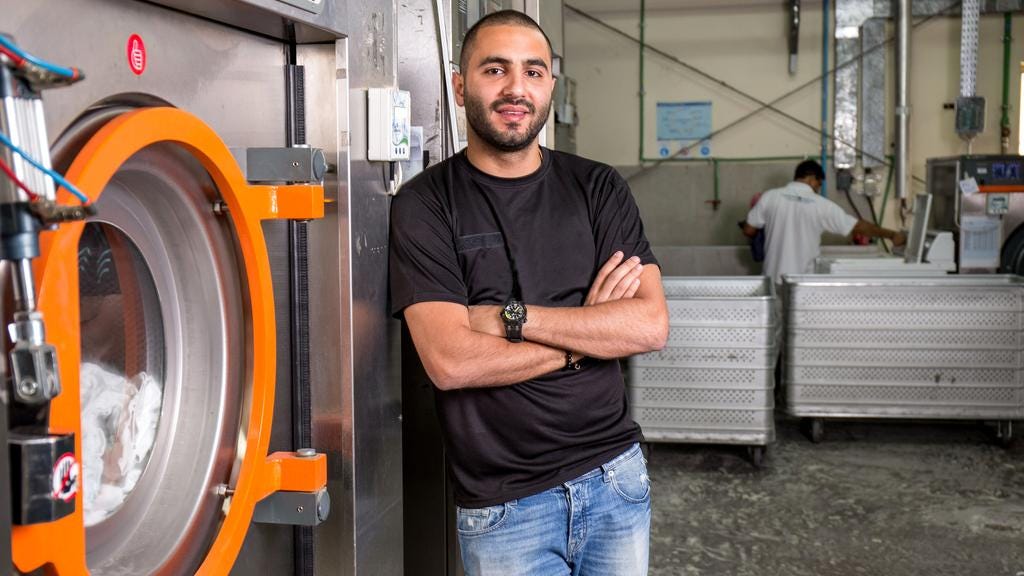Month: September 2019
StartEgypt Heads North; Launches Leading Entrepreneurship Initiative in Alexandria

After the successful launch of StartEgypt initiative in Cairo two years ago to push forward the most innovative cairene entrepreneurs, then in Assiut to be a hub for aspiring innovators from Upper Egypt, StartEgypt, proudly, launched in Alexandria to, yet again, help in the nourishment of the young minds who are seeking social impact through their ideas. The StartEgypt initiative is funded by the United Kingdom’s Department for International Development (DFID); supported by the International Finance Corporation (IFC) a member of the World Bank Group; and powered by Flat6Labs.
With the launch of StartEgypt Alexandria and the eight new startups joining its first incubation cycle, we’ll see those new startups thrive to inspire, build, accelerate and have indefinite social impact in the environmental, healthcare, renewable energy, and educational industries.
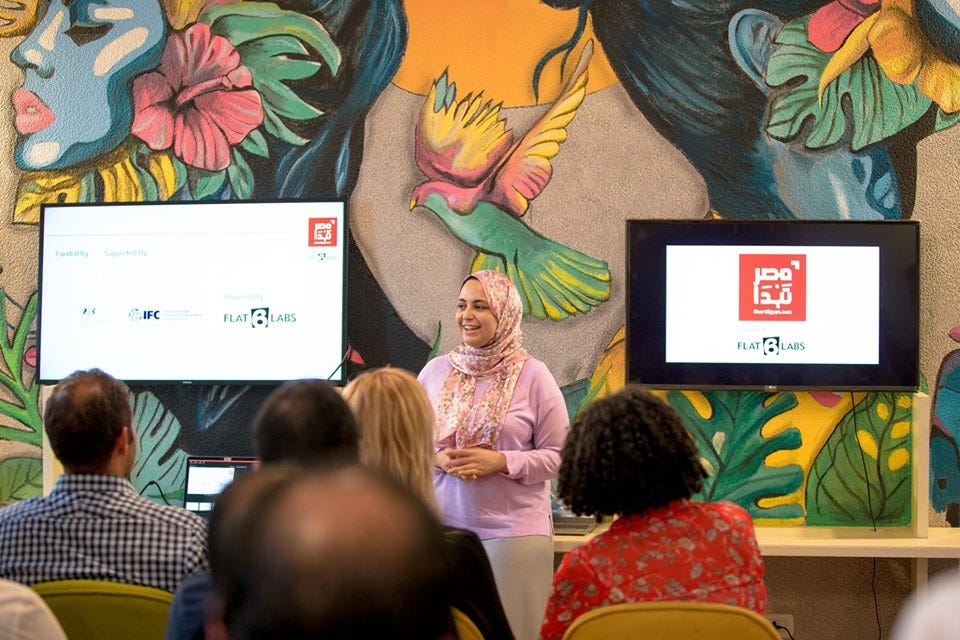
The launch event of StartEgypt saw those startups pitching their ideas to a number of entrepreneurs, representatives from the British Embassy, and investors who are looking for the next big idea.
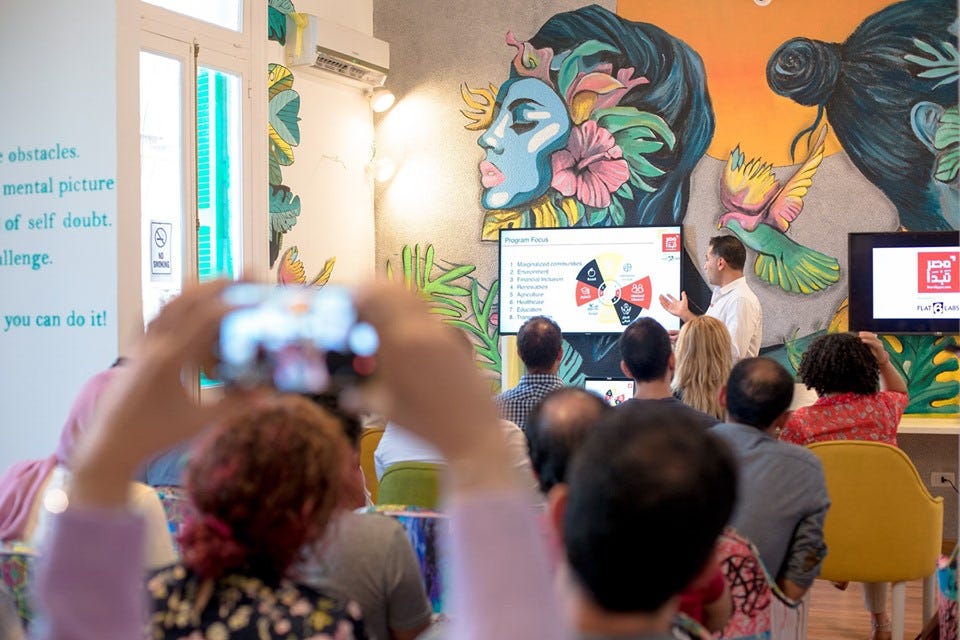
While the aforementioned startups target four important industries, StartEgypt Alex’s scope of industries is bigger, as it also includes marginalised communities, financial inclusion, agriculture, and transportation sectors whom are represented thoroughly through StartEgypt’s existence in different cities across Egypt.

Over the course of upcoming 15 weeks, the startups from StartEgypt Alex’s cycle one will be mentored, coached, and given different types of resources to develop their products/services and compete to earn two spots on the StartEgypt Forum day.
The forum will also host several other startups from StartEgypt Assiut (2 startups) and Cairo (10 startups). The winner on the Annual StartEgypt Forum day will get a chance at getting scouted and accelerated by the Flat6Labs Cairo team and a chance at receiving funding of up to $25k.
The 5 Types of People You Need on Your Team to Take Your Startup to the Next Level
Choosing the right team is essential to your business’ success. You could be a brilliant entrepreneur with an awesome business idea destined for success, but if you don’t have the right people on your team, you won’t go far. Based on CB Insights report on the top reasons startups fail, which was conducted on 311 flamed out startups, 23% of startups fail due to not having the right team — it’s also the third most common reason for startup failure.
During the Flat6Labs Cairo 4 month acceleration program, we help our startups find the right candidates for their business by co-hosting a talent match-making event with one of the biggest online recruiting companies, Wuzzuf; and by offering them sessions on how to acquire the best talents and how to build a strong team delivered by top industry experts. Our applications are open all year long — you can apply on our website.
We strongly believe that creating a company from the ground up and growing it to a full-scale enterprise takes a well-rounded team that can overcome the many obstacles that come their way. To make sure that your company moves in the right direction, never loses focus, and grows to its full potential, there are certain personality types that you always need to have on your team — from the get-go!
1- The Visionary
Because of the magnitude of their thinking, they’re often entrepreneurs themselves. They are the masterminds that can come up with the most world-changing products and services. They’re always ahead of the curve in terms of, identifying potential problems and coming up with solutions that can change the course of humanity.
Even if you already have a big vision for your company, you still need to have a visionary on your team. They will help you create the right strategies to achieve, finalise, and realise your vision.
One of the best examples of this type of personality is the co-founder of Apple; Steve Jobs. Before Jobs came back to Apple and during the final quarter of 1996, Apple’s sales plummeted by 30 percent. The brilliant entrepreneur was able to save Apple from being on the brink of bankruptcy by decreasing the number of products by 70% and focusing only on four main products. He saw that focusing on quality and innovation rather than quantity will radically change the company’s future. One year later, Jobs’ vision did pay off, and the company turned a $309 million profit.
Good Habits 1: Train yourself to innovate every day. Grab a notebook and write down three ideas on how to develop your product.
2- The Social Butterfly
They are socially dynamic, networking, charismatic, and personally gregarious. A social butterfly is an extreme extrovert brimming with energy and confidence, who truly believe in your vision for the company and want to play an active part in helping you achieve it. They are exceptional marketers who know your solution well enough and understand its business needs.
A great example of this type of personality is the youngest self-made billionaire; Kylie Jenner. The famous Kardashian was able to build a one billion dollar cosmetic brand without manufacturing anything! Kylie Cosmetics is only responsible for marketing through social media, and other companies manufacture, package and distribute the products. In its first 18 months, the company made 420 million dollars in sales. All that success came mainly from Jenner’s social media followers. She has 145M followers on Instagram and a massive audience on Snapchat. The estimated value of a single post is $1 M.
Good Habit 2: Find a hobby or an activity that’s social. It’ll be easier to expand your social circle with people who share your passion.
3- The Ultimate Optimist
Running a business comes with its pressures and challenges. When things are not going your way, it’s easy to lose hope and look for the easy way out. That is why you need an ultimate optimist on your team.
As the name suggests, these are extremely positive people who stay calm under pressure and see the brighter side of things even in the darkest of moments. They have belief and conviction in the abilities of your team, and know that every obstacle is only a stepping stone for greater success.
Gary Vaynerchuk (or Gary Vee) is the perfect example whenever we talk about optimistic entrepreneurs. Vaynerchuk and his family immigrated to the US from Belarus in 1978, and he lived with 8 family members in a studio apartment in Queens, New York. Today, the 43-year-old runs a multimillion-dollar digital marketing company that he founded. The company’s clients include Fortune 500 companies like General Electric, Budweiser, Toyota, Revlon, and Unilever.
The brilliant entrepreneur succeeded despite his humble beginnings and despite the fact that he was a D- and F-student in school. He attributes that success to his unshakable self-confidence and optimism. “I do believe that blind optimism, naïveté, and self-confidence are enormously delicious traits that allow you to win more often than you lose.” Says Vaynerchuk on one of the episodes of DailyVee, a full-blown vlog documenting his life as a CEO.
Good Habit 3: Notice Negative Thoughts. Becoming aware of your negative thoughts and how often they occur will help you realize when and why you are negative. Maybe you’re more negative during stressful situations or when you’re feeling emotional. Being mindful of your pessimistic thoughts will help you pinpoint what’s causing you to feel negative.
4- The Hacker
They are your go-to people whenever you want to find an innovative solution. They know shortcuts to do things more effectively, and they understand your business from A to Z. They’re not necessarily technical or functional experts. But they have a tendency to question everything and explore it their own way. As a result, they grasp concepts quickly, and find out ways to use them for business benefit.
When you have hackers on your team, you always have a great chance to outmaneuver your competitors, and reverse-engineer successful products to build something more useful. When you get into trouble, they are your risk management experts who can turn the seemingly inescapable horrors to greater opportunities for growth and success.
Serial entrepreneur Elon Musk is the definition of “the hacker”. In December 2016, The forward-thinking co-founder and CEO of both Tesla and SpaceX became frustrated while stuck in heavy Los Angeles traffic. He tweeted “Traffic is driving me nuts. Am going to build a tunnel boring machine and just start digging…” Why sit in traffic above ground when you could speed ahead below it? Most people complain about traffic, but Musk took action. Two years later, he made a brief public appearance to unveil the completed tunnel.
Good Habit 4: Fix it for yourself: Whenever you face a problem in your business, take some time and try to fix it first before you call for help.
5- The Expert
They are the heart and soul of the company — they know the ins and outs of your core product or service. They are functional experts who understand the importance of what you have built, how it helps your customers, and what improvements you can bring to make it more useful.
If you’re not an expert yourself, there’s no shame in hiring a know-it-all experts to help you understand every aspect of your business, stand out from your competitors, and create a product that exceeds the expectations of your customers. “If you don’t understand the details of your business you are going to fail.” Said Jeff Bezos, the CEO & Founder of the well-known e-commerce company, Amazon.
These experts, along with the other 4 types discussed above, will be the backbone of your business model, and will provide you with a strong foundation on which you can build a vibrant organization.
Good Habit 5: Track one major business metric daily: In order to truly understand the core of your business, you need to focus on at least one business metric per day, and try to learn something new about it.
Washmen: The Future of Laundry?
The Story Behind Amounting Millions of Investments From Laundry
Leaders are catalysts of change, they innovate after years of wear and tear to civilisations-old manuals. After graduating from Flat6Labs Abu Dhabi’s Spring 2015 cycle, the laundry startup, Washmen, was already on a path to becoming one of the leading laundry shops in the UAE. We sat with its CEO & Co-founder, Rami Shaar, to talk about how they are revolutionising the laundry industry, the backstory to their success, their plans for the future in regards to their services, and how they plan on allocating the most recent investments towards scaling and development.
Why did you decide to localise your service in a plant of your own instead of outsourcing to local laundry shops?
There isn’t a lot of good quality, or big players in the market who’d give us a price that makes sense for the business and the quality. Hence, we thought that it’d be a good idea for us to build our own facility, which would eventually give us a 5x scaling opportunity. It helped us — significantly — improve the quality. Also, we had gotten into a stage in the business where running a very large facility is equal to the cost of outsourcing. It just didn’t make sense to outsource anymore. Especially given that if we start scaling further past it, it will give us more gross profits; since we will have the ability to acquire new customers with more items for laundry. So the reasons are mainly financial and operational.
Do you think owning a plant brings with it more operational complexities?
There is a certain limit to how much we can force our suppliers to use our tech, and to integrate them deep into their operations because they are not willing to accept certain ways on how to do business.
We can say that the way we do things is more operationally efficient, and we collectively have decided that the best way to move forward and to manage our supply chain was by owning the facility. In addition, owning our own facility allows us to build tech that was very deep into the supply chain, and to be consistent with out quality.
Hence, with our dependence on our own factory, our services can be more customisable, especially given that we can build more tech within the operations to be able to follow up on specific instructions of our customers.
We are also working on developing a camera monitoring technology that will allow us to monitor, pinpoint and know where to put accountability when it comes to damages and lost goods. It goes towards monitoring employees and processes to see how efficiency can be improved.
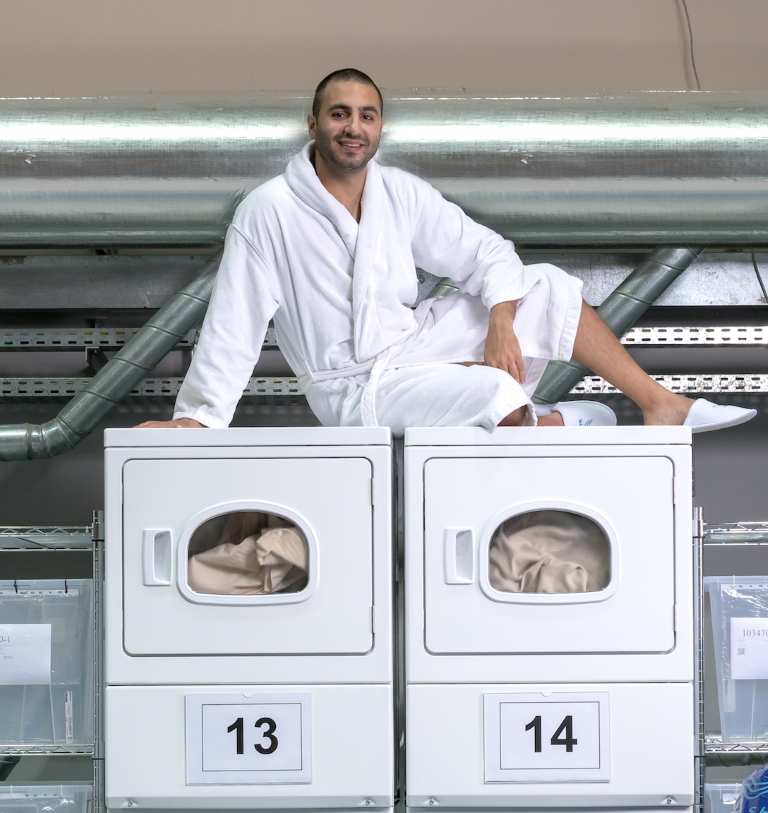
What differentiates your services from similar ones in the market?
If something gets damaged or lost, in this industry, consumer rights dictate that companies are to pay 10 times the price of the service. For us, we are more confident that we won’t damage or lose any goods, so we offer 20 times the price of the service. Sometimes we even go above and beyond if we know that there is negligence on our part. That’s really the overall quality, the overall operations, and how it translates to lower risk towards the customer.
Moreover, in our app, we have a call centre and a live chat function; and we also have founders who are very involved with our customers. Having a direct channel of communication with our customers allows us to also improve our services through feedback, and to understand what is it exactly that our customers want in order for us to have a better product-market fit.
Logistically speaking, using the app is much easier than calling somebody. This can be attributed to having a pickup and drop off service, so the customer doesn’t really need to drive anywhere. We also have online payments, and not a lot of players in the market offer that, and we have a much higher quality that is non existent in the market at the moment.
Something that really stands out now at washmen, is that we have introduced commercial hand washing, and commercial hand drying. Basically, it is a process that mimics hand-wash, and hand dry, but we do it industrially in the facility. This is mainly done through very special machines. Also, we have plans for a shoe cleaning service because a lot of our customers have been asking for it, so that’s next in line.
Do you think that your service can be integrated into AIs like Google Assistant, Siri, Alexa, etc…?
That’s actually coming out in the next two weeks. We’re working on being able to have a conversation with Siri to order your laundry. It is actually part of the iOS 13 launch; and we’ve partnered with Apple to become a part of their Siri Conversations. Later, we will be moving to Google Assistant and Alexa and all that. The idea here is not just to be cool, but the idea here is how we can make the process even more efficient to our customer through the use of AI. There are also a couple of interesting things out there like IBM Watson, and we could integrate it alongside our service agents, where IBM Watson learns from how our service agents work and he can take part in managing our customer complaints, feedback, and give them support, all using AI.
What is the biggest challenge that comes with over $6m worth of investments?
We were pretty confident after we have done our R&D that we will be capable of putting any amount of investment into good use. However, I think the biggest challenge is always growth and scaling demand. It is great to have a “kickass” facility, but at the same time you are building for scalability, so if you don’t achieve that growth and scalability then the story ends. It is very important to be operationally excellent and have scalability in hand. The major challenge going forward, is continuing to scale the demand side of the business, not just the operational. Regardless, we’re very data driven, and we have a lot of tech tools that aid our quest in scaling and growing.
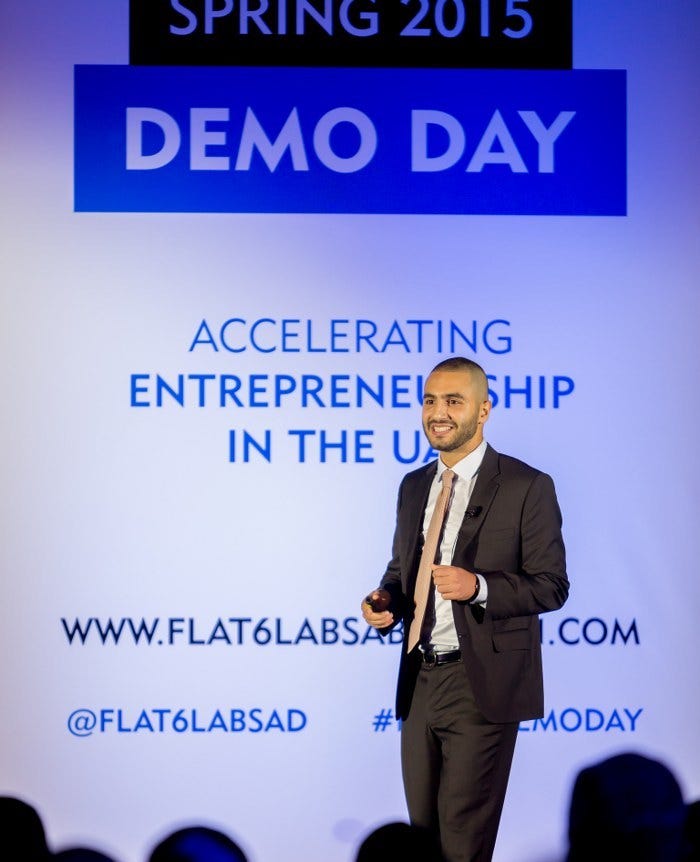
What is your biggest achievement so far?
Besides the +$6m of investments and getting amazing partners like Henkel, I think that would be building the strongest know-how of laundry in the whole world, whether it is offline or online.
Laundry has always existed since the beginning of civilisation, we were always washing clothes and after all those decades, we as a company have done things better than all civilisations have ever done. We’ve innovated in four years, much more than any other civilisation has done.
If you look at the dry cleaning and laundry services in the last few years, they haven’t changed. They use the same machines, the same chemicals, and the same processes. We’re a global leader in our know-how of how to do laundry. Research and interviews have been conducted in everything related to laundry, and they concluded that what we’ve developed here is miles away from a lot of players out there.
So yes, we are a company based out of Dubai, but we are a global company in the know-how that we have.
How do you think this industry in the MENA will change in the upcoming years?
It is similar to how the food online delivery business were back in the day, it wasn’t that easy to order food from your phone. You needed to call someone, pay cash, etc.. People were cooking at home and bringing their lunches to work, but now as we become more consumed with work, having access to such apps saves us time and effort that we’d rather spend on work. That kind of convenience can be replicated in laundry, where in the future people might actually stop using and depending on home appliances or even buying them to wash their stuff, and instead outsource them to a company like us.
Do you have any plans of expansion inside the MENA or Dubai?
Currently, no. We’re actually looking for bigger markets outside Dubai and MENA, since most of our investors, are invested in laundry operations located inside: London, New York, and South Korea. These places have huge competition and opportunities for high growth, but none of them have the technologically efficient and standardised quality that we have.
